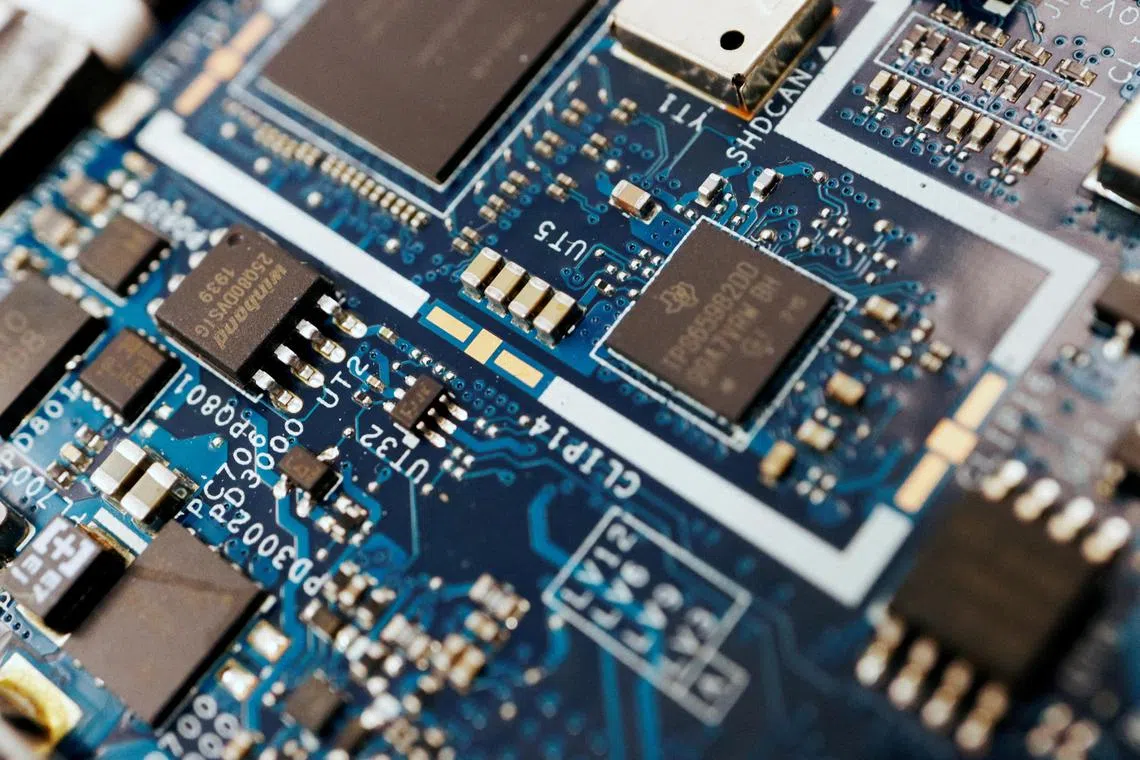China buys fewer chip-making machines as US curbs kick in
Sign up now: Get ST's newsletters delivered to your inbox

Chinese firms imported US$2.4 billion worth of machinery used in semiconductor manufacturing last month.
PHOTO: REUTERS
Follow topic:
BEIJING - China’s purchases of machines to make computer chips fell 27 per cent in October from a year earlier as the United States imposed new, sweeping sanctions to try and derail the country’s chip ambitions.
Chinese firms imported US$2.4 billion (S$3.3 billion) worth of machinery used in semiconductor manufacturing in that month, the lowest amount in more than two years after Washington broadened restrictions on the sale of the equipment to the world’s No. 2 economy.
It is unclear exactly how much imports were impacted by the sanctions, which were announced early in the month, but October was significantly weaker by value than any other month in 2022. Chinese purchases from overseas suppliers have fallen in seven of the 10 months for which data has been reported so far in 2022.
Purchases from major exporters such as Japan and the US were down in October, according to a Bloomberg analysis of official trade data released on Monday. Shipments from the Netherlands doubled in the month. That is where ASML Holding, the leading producer of chip-making equipment, is headquartered.
In the past few years, Chinese firms had been rapidly buying more of this equipment as the country seeks to develop its domestic semiconductor industry to be independent of the US.
The new US restrictions
The trade data also showed that Chinese imports of computer chips were up 1 per cent in the first 10 months of the year, although much of that increase came at the start of 2022. More recent declines have reflected a cratering in demand for smartphones and personal computers after fears of a global recession deepened.
China’s zero-Covid-19 restrictions – some of the harshest in the world – have also disrupted production and are now disrupting the making of iPhones
Despite the curbs, shipments to China of the US equipment to make chips are unlikely to fall to zero. The controls may stop US exports of the most high-tech machinery, but companies are still allowed to sell equipment used to make older, less advanced chips. The US has also granted one-year exemptions for some foreign manufacturers with fabrication plants, or fabs, in China.
It may also be hard for China to try and ramp up purchases of these goods from non-US suppliers any time soon. Tokyo Electron said recently it is operating at near-full capacity, with months-long wait times for equipment delivery. BLOOMBERG

